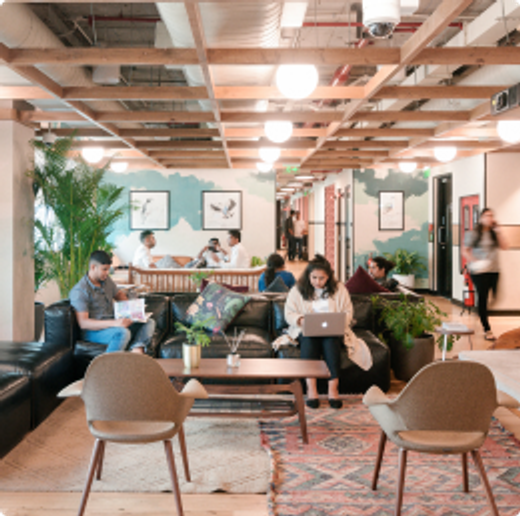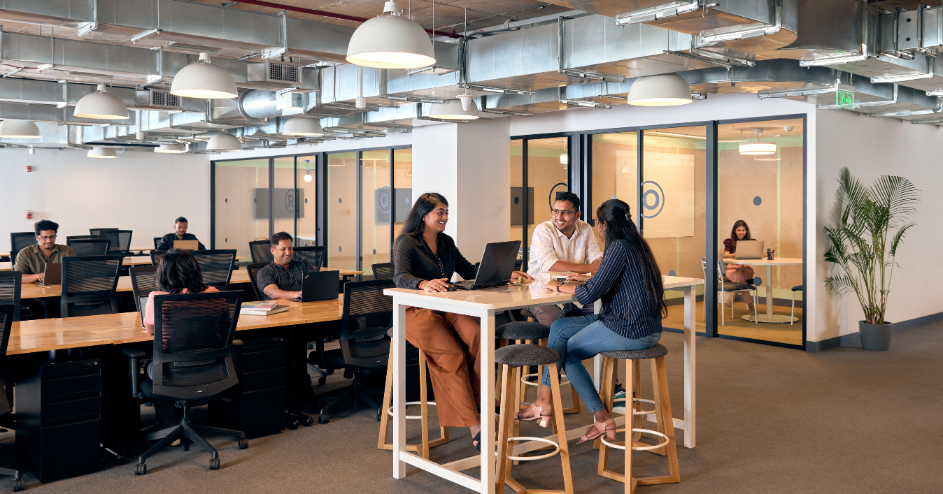WEWORK LABS
How Investment Trends Are Reshaping the Future of Indian Startups

Discover how patient capital, ESG focus, and shifting VC trends are influencing the next chapter of Indian startups. What founders must know in 2025 and beyond.
The future of Indian startups are constantly written and unwritten on a daily basis. A part of the reason we are witnessing such a thriving tech ecosystem in the Indian startup ecosystem is because of the boost of venture capital. Early investors pumped in a huge amount of liquidity into the market today, creating long-standing companies we know today like Ola and xy.
But now, things have changed. Investment trends into the Indian startup ecosystem suggest that it is likely that patient capital—the ability to hold onto an investment long into the company’s growth—will likely have a greater role to play going into the future.
Also Read: India's startup ecosystem
A New Chapter of Discipline and Depth
The exuberance of 2021 is long gone. Founders and investors are now navigating a far more cautious and grounded market. Yet this reset may be exactly what Indian startups needed. The future of Indian startups hinges on prioritising long-term value over short-term wins. This can include shifting focus to issues like corporate governance over raising capital.
For instance, one clear trend in investment points to the fact that bridge rounds are increasingly common these days due to reduced venture capital activity. This also suggests that capital is flowing differently from before, with VCs now treading more cautiously even within early stages of funding.
Also Read: premiumisation wave in Indian retail
Capital with a Conscience
There’s a growing recognition that Indian startups cannot grow on VC dollars alone. The investment trend in Indian startup ecosystems is seeing diversification. Alongside traditional VCs, family offices, corporate venture arms, sovereign funds, and impact investors are stepping in.
This has also led to a stronger focus on ESG. Startups are being asked not just how fast they can grow, but how responsibly. In the next five years, the future of Indian startups will increasingly depend on whether they can align with larger economic, environmental, and societal goals. A growing number of funds are also gender-focused, regionally focused (Tier 2 and Tier 3), or climate-aligned. This conscious capital is helping shape startups that are not only scalable but also socially relevant. A part of this trend can be seen where many family offices are now also putting capital towards patient capital.
Also Read: India’s startup talent strategies
What This Means for Founders
For entrepreneurs, this shift in investment trend is both a challenge and an opportunity. The future belongs to founders who can think beyond the next fundraise. Those who can build lean, focused businesses, with real customer love and sustainable cash flows, will continue to attract capital—even if it looks different from the capital of the past decade.
The good news? India's demographic dividend, expanding digital infrastructure, and policy support still make it one of the most exciting startup markets globally. But founders will need to build for resilience, not just for scale. They will have to prove that they can thrive in both boom and bust cycles. We spoke about these advantages in a video we made
The WeWork Labs Take
Startups today are very different from the ones from the previous era. Now, they are more focused on sustainable models, ready to delay fundraising in favour of reaching product-market fit, or bootstrapping to retain control. They’re more informed, more aware, and more selective.
As the Indian startup ecosystem matures, we believe the future will be built not just by unicorns, but by durable, mission-led companies solving India’s hardest problems with innovation and empathy. The investment trends we’re witnessing now might just be the correction we needed to ensure that the next decade of Indian startups is not just faster but wiser.
Related Blogs:

WEWORK LABS
With the Indian startup ecosystem gaining maturity, there are a number of things changing—startups are thinking more global in their ambitions, more companies are taking their companies to the market

WEWORK LABS
India may be home to unicorns and cutting-edge tech, but at its core, it's still a nation of farmers — with over 50% of the population dependent on agriculture.

